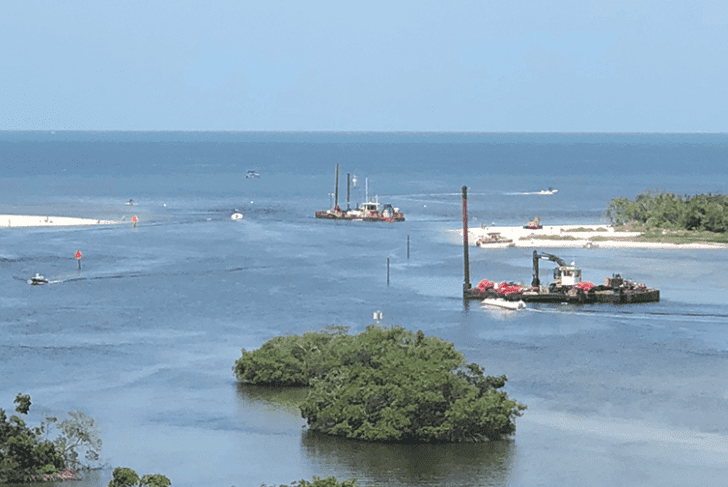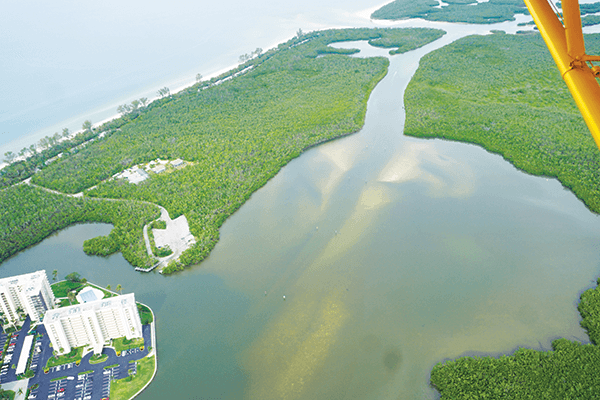by Alan Ritchie
By August 1st, the 2018 dredge of Wiggins Pass will be history. Over 100,000 cubic yards of beach-quality sand will have been placed off the beach at both Delnor-Wiggins State Park and Barefoot Beach in Collier County and the safety and navigability of the pass was greatly improved.
As of July 9th, there was still equipment in the pass touching-up a couple of spots and the County was about to install the relocated channel markers. This marked the end of a multi-month project greatly improving the conditions in the pass.
In addition to straightening the channel from the mouth of the Cocohatchee River to the Safe Water Mark outside the Pass, the dredge included some clean-up of shoaling in the area of the channel intersection just inside the pass. A significant amount of material was removed from the southbound channel that provided improved access through Water Turkey Bay south into Vanderbilt Lagoon. While the dredge in the south-bound channel went as far as the dredge permit allowed, there were still some remaining shallow spots a little further south of the intersection and in the marked channel across Wild Turkey Bay. These are areas that haven’t been dredged in about 20 years. In the post-Irma photo shown below you can clearly see what the channel looked like after the hurricane.
To improve the boating in these areas, the County will be moving the channel markers in July to reflect the best water available. The Wiggins Pass management plan only provides for a 3-foot channel at “mean low water” (MLW). Depth soundings will be done regularly in the months ahead to track changes in the water depths in this area. With the possibility of narrower channels, extra care should be taken by boaters in navigating these waters. Safe boating!


